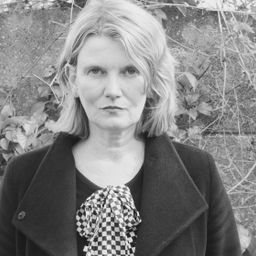Urban Heritage: Critical Theoretical and Methodological Perspectives II
My Session Status
Although the role of heritage, and culture in general, in forming sustainable cities is growingly emphasized, heritage still stands in the periphery. Heritage is often viewed as "something" that can benefit from wider sustainable models and projects rather than as an agent of change.
In this session, we would like to introduce the concept of deep cities, a concept which refers to a city’s long-term history and heritage. The session will explore how this concept can offer new ways of thinking about sustainable cities. The underlying idea of the session is that heritage is not just "something that is subject to change," but a driver of change. However, for heritage to hold such an active role, we contend that participatory approaches in developing deep cities need to be adopted.
The introduction of the novel concept of deep cities will open new research avenues for the field of critical heritage studies. By bringing together architecture, archaeology, ethnology and conservation, this session invites contributions from a wide range of geographical regions that illustrate examples where sustainable cities have been the result of the adoption of deep cities. The session would welcome papers that discuss theoretical and methodological issues related to one of the following (or related) themes:
• Urban environments and planning;
• “Imagined communities” of heritage;
• Critical sustainability perspectives on heritage and the Anthropocene;
• Diaspora, diversity and cultural citizenships;
• The future of heritage;
• Participatory approaches to urban heritage.
Selected papers will form the basis of the edition of a special volume on "Urban Heritage."
Sub Sessions
This paper will argue that oral histories allow access to the dynamic existence of heritage places as ever-changing sites of experience. Individual and community use in the context of shifting and contesting discourses builds up layers of meaning, memory, and identity within heritage places, before and after listing. Oral history offers a complex and sensitive method of tracking and documenting this experience and reframes the question “what does heritage change?” in the context of communi...
Historic cities in China are often characterized by long-term history and a material absence of heritage. It has caused difficulties in heritage conservation as the authorized heritage discourse (AHD) is holding sway in China. The idea of making heritage a driver of change has been faced with a challenge in such a context. This paper, by presenting a case study in Hangzhou, China, will argue that the adoption of deep mapping and spatial narratives may help these historic cities re-material...
Finland is a country that is more noted for modern architecture and contemporary design than urban history and treasures of cultural heritage. The urbanization of the present-day Finland started in the early fourteenth century with the establishment of six cities by the mid of the fifteenth century. These cities are using their medieval history selectively in branding and identity-making of the town as well as in tourism and cultural events when desired, but what is the value and presence ...
In the past fifteen years, there has been an increasing call for built heritage practitioners to use the values of a broad array of stakeholders when determining what buildings, places, and landscapes are “historic” and how the authenticity of these resources should be conserved. There are, however, no efficient, pragmatic methods that these practitioners can use to address this need. Moreover, there is a growing gulf between heritage studies academics advocating for a heterodox approach t...
Flanders has a historically grown dense network of routes and paths, linking towns and villages on an average one-day walking distance. Within the fabric we detect numerous small-scale historical buildings with an identity importance way beyond the artifact itself, representing an old collectively used mesh, entwined with societal narratives. Today “The Urban” and “The Rural” seem to merge. This finds expression in a fast transforming hybrid and ambiguous spatial structure consisti...
As historic cities are dynamic systems that inevitably change over time, one of the key problems that emerges in heritage management and heritage conservation is how to cope with these changes while protecting the valued elements of the existing townscape. This is especially challenging in historic cities that have suffered a rapid decline of their existing uses, remaining obsolete for a long period after once being markedly prosperous. In such cases, heritage can act as a catalyst for urb...





